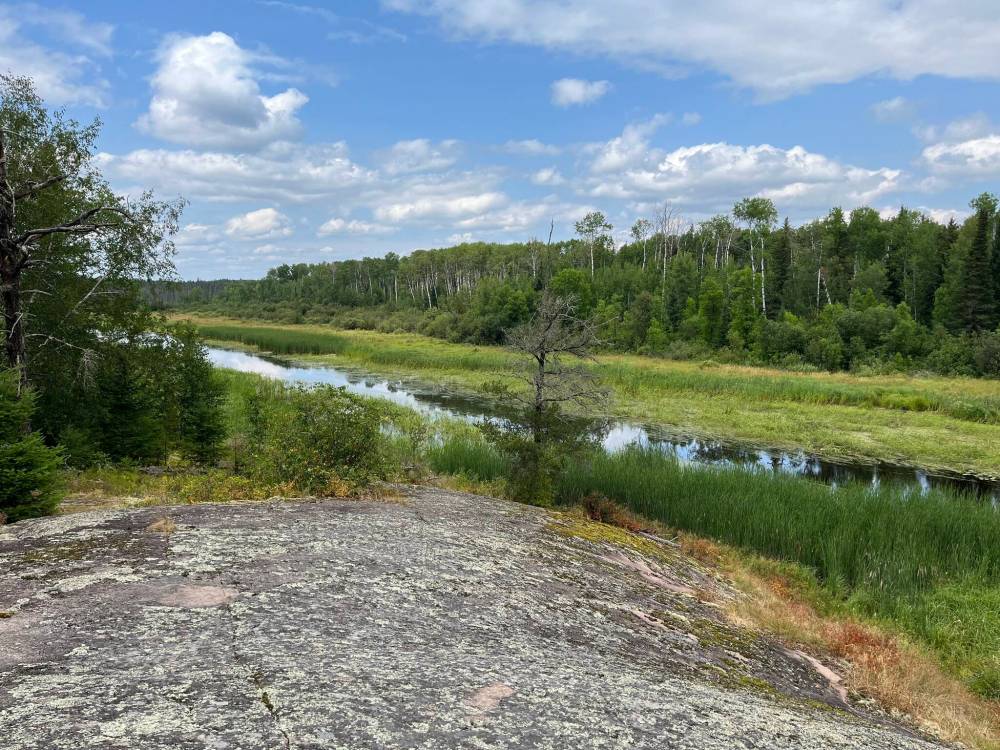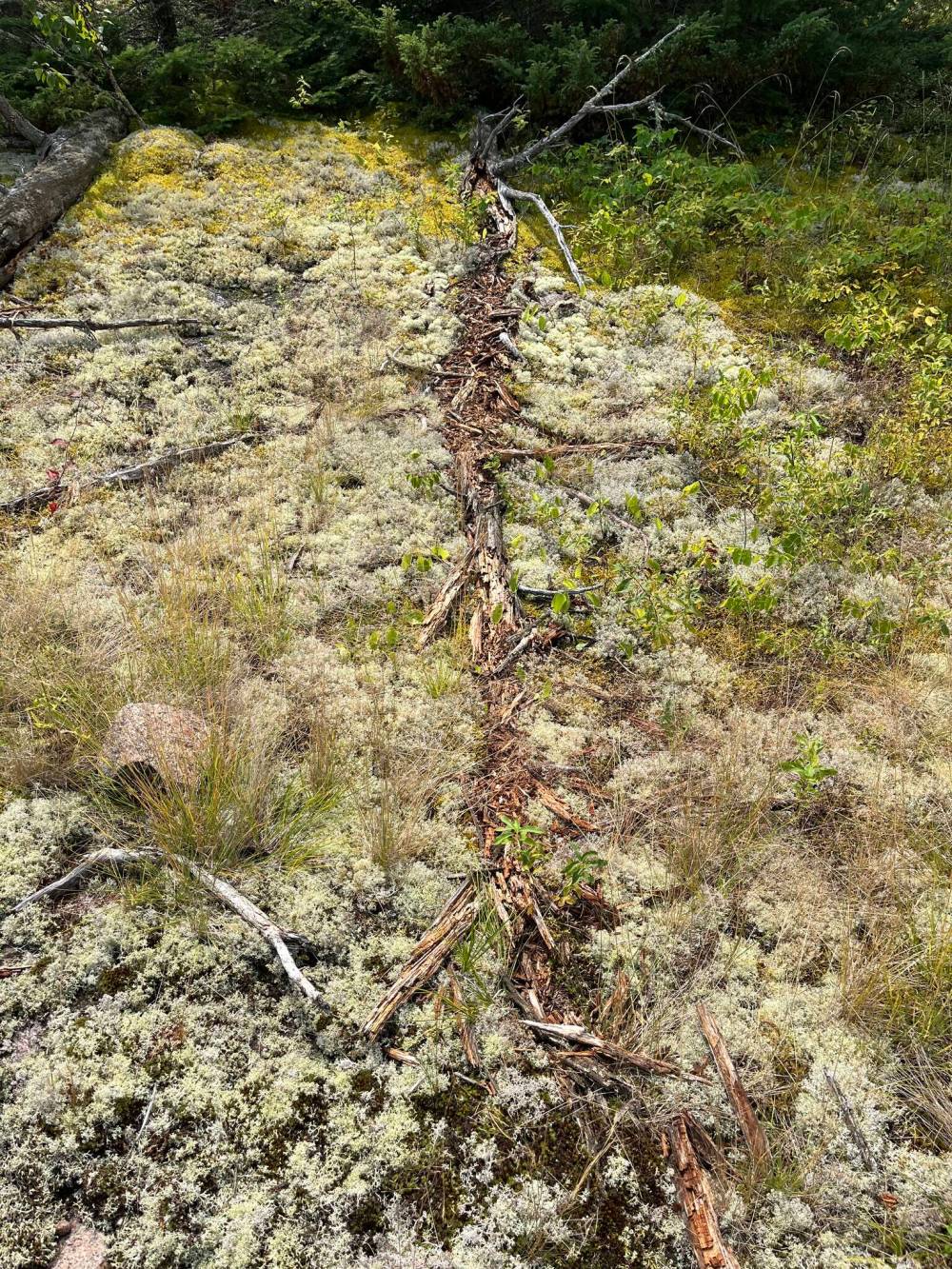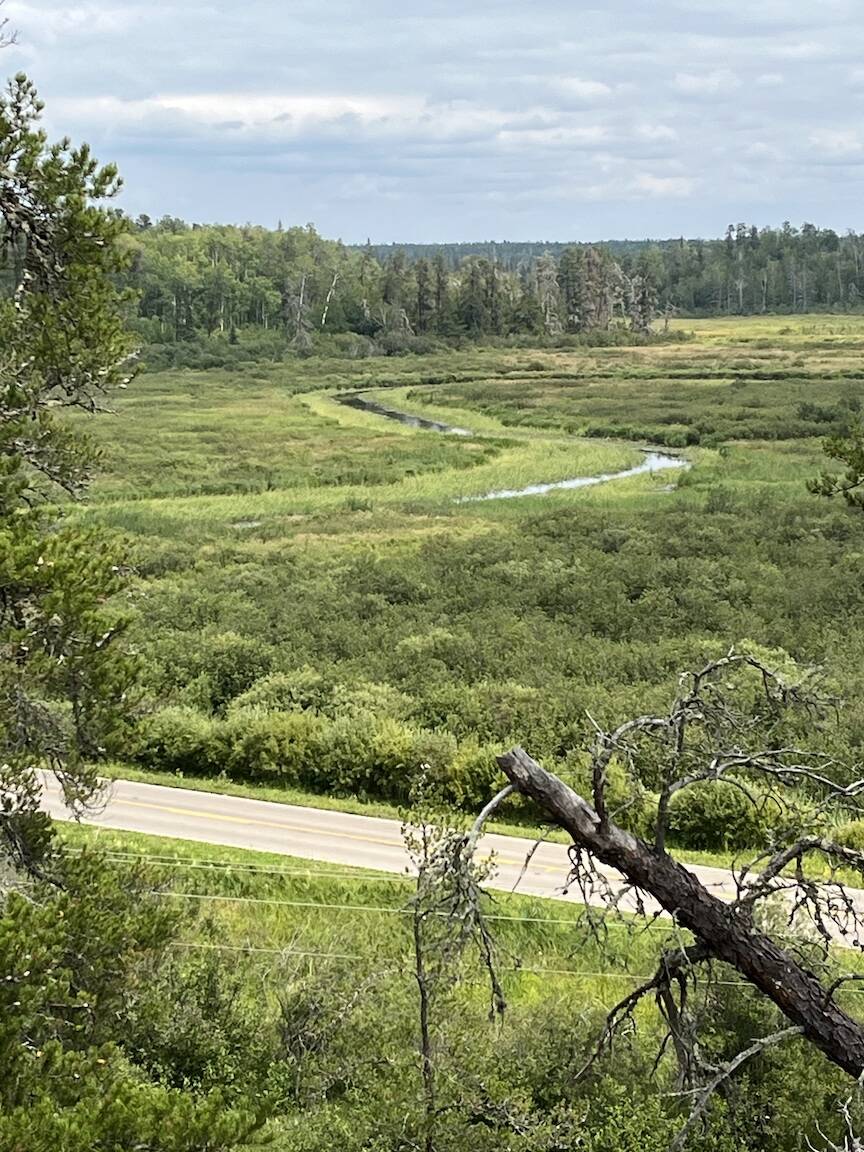Swap bitter stench of grievance for trails’ transcendent scents
Advertisement
Read this article for free:
or
Already have an account? Log in here »
To continue reading, please subscribe:
Monthly Digital Subscription
$1 per week for 24 weeks*
- Enjoy unlimited reading on winnipegfreepress.com
- Read the E-Edition, our digital replica newspaper
- Access News Break, our award-winning app
- Play interactive puzzles
*Billed as $4.00 plus GST every four weeks. After 24 weeks, price increases to the regular rate of $19.00 plus GST every four weeks. Offer available to new and qualified returning subscribers only. Cancel any time.
Monthly Digital Subscription
$4.75/week*
- Enjoy unlimited reading on winnipegfreepress.com
- Read the E-Edition, our digital replica newspaper
- Access News Break, our award-winning app
- Play interactive puzzles
*Billed as $19 plus GST every four weeks. Cancel any time.
To continue reading, please subscribe:
Add Free Press access to your Brandon Sun subscription for only an additional
$1 for the first 4 weeks*
*Your next subscription payment will increase by $1.00 and you will be charged $16.99 plus GST for four weeks. After four weeks, your payment will increase to $23.99 plus GST every four weeks.
Read unlimited articles for free today:
or
Already have an account? Log in here »
Hey there, time traveller!
This article was published 10/08/2024 (428 days ago), so information in it may no longer be current.
Out last Sunday to the Whiteshell, learning new roads — the 15 to Elma, the 11 north to the 44, the battered and narrow 307 north just past Rennie.
Looking for a walking trail, finding the loop of the Amisk Trail near Brereton Lake. There are actually three intersecting trails in a triangular block of woods, brush and stone: the Trans Canada Trail, in the woods for a while before running along a cabin block road to Inverness Falls, the Amisk itself, and the Inverness Falls trail, which links the falls back to the Amisk loop.
The best part? The last of those three, the nearly-invisible trail running between Inverness Falls and the Amisk Trail.

The start-point is nothing more than a slight gap in the brush on the side of the cottage road, the only hint an aluminum signpost that no longer boasts a sign. If the map didn’t tell you that you should be expecting it, you wouldn’t notice it at all.
The track was a stop-and-go of looking for small orange tags of flagging ribbon — the colour fading to pink from age and weather — the slim trail underfoot needing your constant attention: wet, uneven footing, long slopes of glacial bedrock slick with fine moss, fallen trees to clamber over or limbo under. Late sweet blueberries to be picked in handfuls, the sour pucker of pin cherries, the sight of solitary mushrooms holding court: yellow amanitas, perfectly poised and poisonous, pushed up, en pointe, through the leaf litter.
In under the trees, where the damp from the morning’s passing thunderstorm still lingered, the smell of noble rot was all-encompassing. The wonderful thing about smells is you can’t completely remember them or recreate them in your head, but the moment they catch in your nose, they deliver you back to the other places you smelled them. I went from a Whiteshell trail to the edge of a Cape Breton highway to a brookside on eastern Newfoundland’s Avalon Peninsula, all without moving my feet even an inch. A single — though complex — smell can unlock things in a marvellous way.
Step from a damp bower overhung by tree branches out onto a huge rose-pink shoulder of stone, the rock face mapped and tattooed with lichen, the perfect place to sit and unpack a light lunch: ham and chicken sandwiches on light rye bread, pickles and olives, carrot sticks.
Nearby, the trunk of a single fallen tree — softwood, either fir or spruce, but I’d bet fir from its epic decay — stretched out flat against the lichen and stone, completely rotted away so it was like unexpectedly coming upon a complete skeleton, sans flesh.
Almost no sign of people — the occasional footprint, a broken branch, but almost no trash — and no voices other than our own.
Fantastic.
Even the last bit of the trail, down through marshy ground with an aging wooden boardwalk and assembled legions of famished mosquitoes, failed to put a damper on the day.

Russell Wangersky / Free Press
View of the Rennie River from the Amisk Trail.
This, I have all the time in the world for.
But for other things, I don’t have time anymore.
I don’t have time for the endless litany of “Canada is broken.” I don’t have the inclination for a full-time soak in the wading-pool of endless grievances. To a certain extent, staying out of that solipsistic swirl and moan has to be a matter of choice, despite how alluring misery can be. Misery doesn’t just love company — it thrives on it. Feeds on it. Becomes its own self-fulfilling prophecy. Poison spreads.
I’m not saying we all have to be total optimists — to be honest, I have been leery of every eternal optimist I’ve ever met. It’s as if they’re intentionally putting on overly cheerful clothes to hide a darker interior core.
I’m not even saying you have to look at the world as if the glass is half-full instead of half-empty.
I just want to stop being told the glass is broken.
Sunday, I walked among the trees and gazed down at the slow bend and eddy of a bog-bound river, imagined putting a canoe in the water there, heard a pileated woodpecker without ever setting eyes on it, touched sphagnum and reindeer moss with my feet and fingers for the first time in what felt like ages. Enjoyed something as simple as the feel of the summer air on my arm with my elbow out the car window. Wondered about what the scent of bur oak would be, freshly split. Sat on the edge of the Whitemouth River near the Elma rapids, marvelling at the way logs and tree stumps had piled up against the concrete legs of the highway bridge in spring flood. Listened to the rush of the water.

Russell Wangersky / Free Press
Rennie River seen from the Amisk Trail.
I don’t regret one bit of it.
We all should find better things to be doing than dwelling endlessly on how everything is ruined and wrong.
But to each, their own.
Russell Wangersky is the Comment Editor at the Free Press, He can be reached at russell.wangersky@freepress.mb.ca

Russell Wangersky
Perspectives editor
Russell Wangersky is Perspectives Editor for the Winnipeg Free Press, and also writes editorials and columns. He worked at newspapers in Newfoundland and Labrador, Ontario and Saskatchewan before joining the Free Press in 2023. A seven-time National Newspaper Award finalist for opinion writing, he’s also penned eight books. Read more about Russell.
Russell oversees the team that publishes editorials, opinions and analysis — part of the Free Press‘s tradition, since 1872, of producing reliable independent journalism. Read more about Free Press’s history and mandate, and learn how our newsroom operates.
Our newsroom depends on a growing audience of readers to power our journalism. If you are not a paid reader, please consider becoming a subscriber.
Our newsroom depends on its audience of readers to power our journalism. Thank you for your support.

